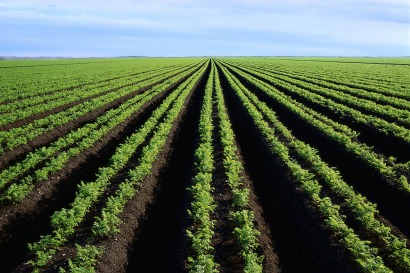
On 22 June, G20 agriculture ministers meet in Paris to discuss price volatility and security of supply in food markets. In preparation of the meeting the UN FAO and OECD recently prepared an input report that contained several policy recommendations on how the G20 should address the current food crisis. The report “Food Price Volatility in Food and Agricultural Markets: Policy Responses” outlines several policy recommendations to tackle food price volatility, including a recommendation to remove subsidies or mandates for biofuels.
However, ePURE claims that the report ignores recommending concrete action to address the two key issues that have influenced recent food price volatility: rising oil prices; and excessive financial speculation in food commodity markets(1) – a key priority for the G20 French Presidency.
Recent food price volatility has also been influenced by a perfect storm: climate change; a grain export bans in Russia; low food productivity linked to a legacy of underinvestment in agriculture – particularly regarding inadequate levels of research and development funding; and changing diets in Asia where more people are eating meat - resulting in a higher global demand for grain-based cattle feed.
Role of biofuels exaggerated
“This report exaggerates the role of biofuels in food price inflation - it pays lip service to the role of oil prices and commodities speculation and overplays the role of biofuels. Ethanol fuel only utilises 3% of global grain supplies – not enough to drive food prices up as much as we have seen. I urge G20 leaders to reject its findings and encourage them to focus their attention on investing in agriculture to help meet both the world’s food and fuel needs. Ending support for biofuels will not alleviate world hunger”, said ePURE’s Secretary General Rob Vierhout.
The G20 meeting comes at a time when the UN FAO just recently revealed that one third of the global food produced for human consumption is wasted or lost(2) - a fact that is not addressed adequately by this report. This shows that this report is out of synch with reality as much as it is with the position of these international organisations, many of which have previously produced reports highlighting the positive impact of biofuels on food production.
The World Bank has previously stated that energy prices and speculation in commodities were the main reasons for the previous food price hike in 2006/08(3), and downplaying the role of biofuels. The UN FAO has previously stated on numerous occasions that biofuels have very positive impacts on food production and can provide much needed income to farmers in rural areas and in the developing world - without compromising food security(4). In May 2011 the UN FAO stated that “investment in bioenergy could spark much-needed investment in agricultural and transport infrastructure in rural areas and, by creating jobs and boosting household incomes, could alleviate poverty and food security”(5).
“While the world wastes 1/3 of its food, biofuels are wrongly blamed for contributing to a food crisis. This is just wrong. Biofuels supply much-needed investment for the agriculture sector by providing farmers with additional incomes that will enable them to improve farming practices and produce more food, feed and fuel”, added Mr. Vierhout.
The report correctly recognizes the many complex and inter-related factors that cause food price volatility such as: underinvestment in agricultural productivity, export restrictions, food wastage, high oil prices, monetary policy and currency fluctuations, crop losses due to poor weather, climate change, and other factors, such as political unrest. However, the report focuses disproportionately on biofuels and falls short in providing any substantial recommendations to address many of the more serious factors and this sadly undermines the report’s credibility.
Another significant omission of the report is that it fails to recognise the important role that biofuels co-products have on the food market. Biorefineries co-produce ethanol and valuable food products such as animal feed. At minimum 1/3 of the total amount of grains used for ethanol production are transformed into high-protein animal feed.
(1) The Food Bubble: How Wall Street starved millions and got away with it. Frederick Kaufman, 2010
(2) UN FAO: Global Food Losses and Food Waste & UN FAO: Cutting food waste to feed the world (Press Release)
(3) World Bank: Placing the 2006/08 Commodity Price Boom into Perspective
(4) UN FAO: Reducing poverty by growing fuel and food (Press Release)
(5) UN FAO: Bioenergy and Food Security (BEFS) Analytical Framework (Press Release)
For additional information:

